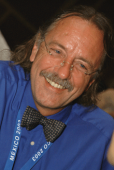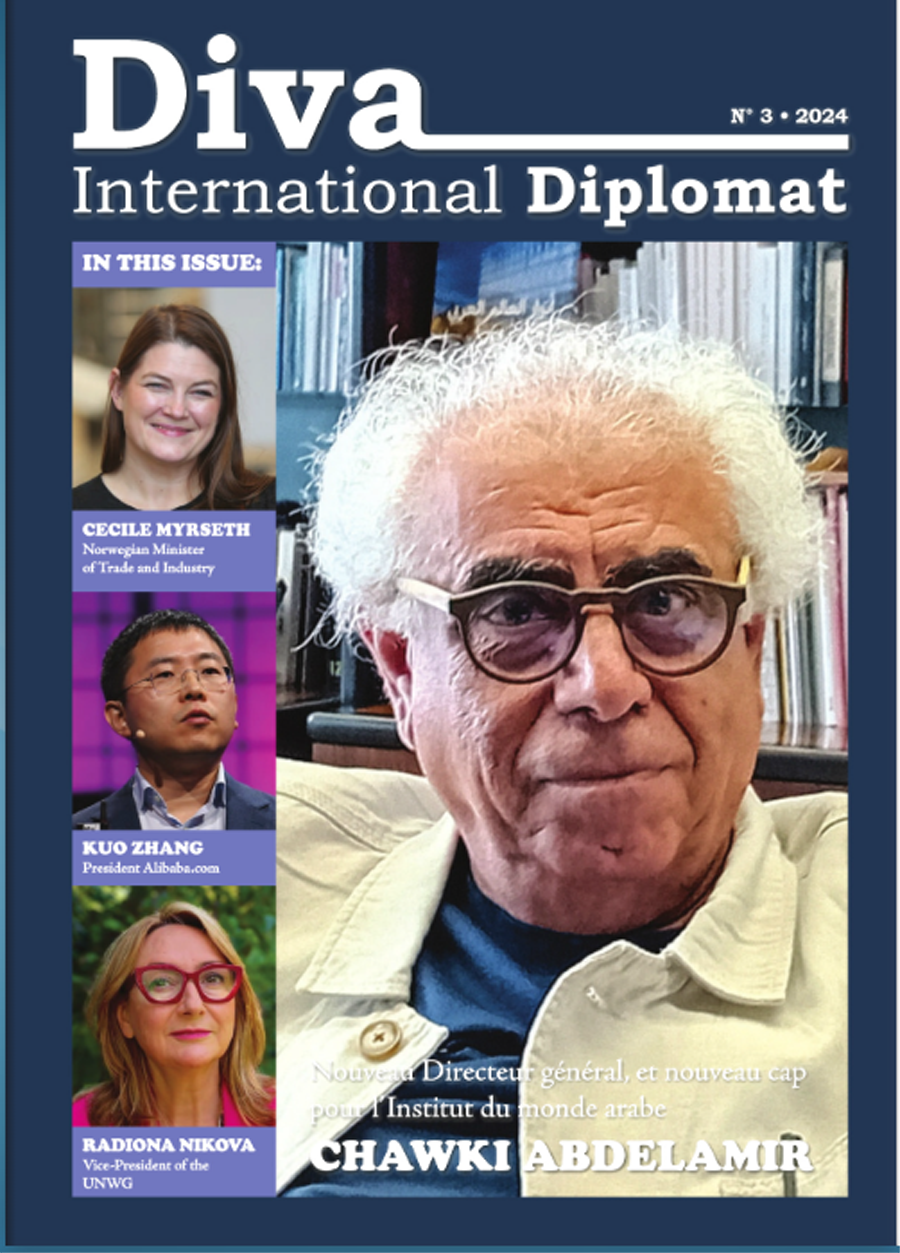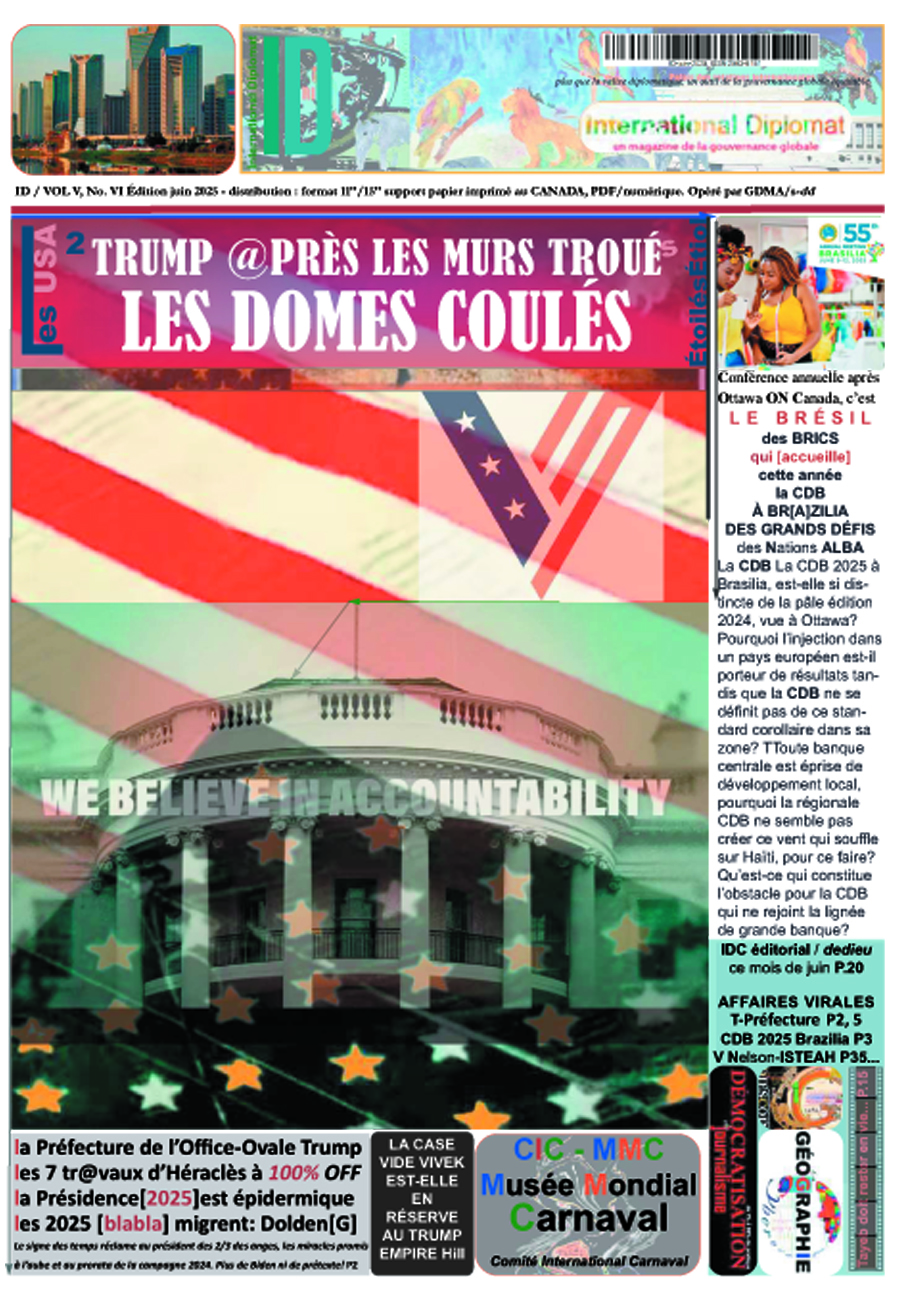
Interview with Anders Johnson Secretary General of the Inter-Parliamentary Union (IPU)
Anders B. Johnsson, a national of Sweden, is the Secretary General of the oldest political international organization in the world, the Inter-Parliamentary Union (IPU). Anders Johnsson is a quiet, reserved man who speaks about his passion for promoting democracy and helping politicians in each country to build up perhaps the most significant democratic institution the world has ever known-the elected parliament. According to Mr Johnsson, a democratically elected parliament is the most important forum for discussions among the people’s representatives and an important medium for maintaining peace in any country.
Q : You are the Secretary General of the Inter-Parliamentary Union. We know it is the oldest among the international organizations, but nobody seems to know about the work you do.
First and foremost, the Inter-Parliamentary Union is a political organization which brings together Members of Parliaments (MPs) of sovereign States. The idea behind it is very simple : you can solve problems in the first instance by talking to each other and not by going to war. Using that as the background idea, you can say that the IPU is a centre for dialogue and parliamentary diplomacy among legislators representing every political system and all the main political leanings in the world-constituting a unique platform for observing political opinions and trends around the world.
The IPU was created in 1889 at a time when there was no global forum where politicians could gather, no place where they could talk about their differences. Today, we are living in an entirely different world, swamped with international organizations. I would say that now we are one among so many others.
The idea behind the organization is much the same as at the beginning. In other words, there is a need for politicians to meet, to exchange views, to discuss, to learn from each other and to do a better job. So we continue to organize meetings for them.
Today we focus more on the promotion of democracy. We have four approaches to promoting democracy worldwide.
One is dedicated to the strengthening of parliaments-technical co-operation. We train parliamentarians and help them to develop parliamentary services, particularly in developing countries, to improve the organization of their work and strengthen their infrastructure, and to provide assistance to elected parliamentarians and parliamentary staff.
We promote or create knowledge about good practices for parliaments. We have just completed a major study entitled Parliaments and Democracy in the Twenty-first Century, which basically explains what we mean by good democratic practice and where we give examples of what we think are good ways of doing parliamentary business.
Then we also have a human rights approach. We work to strengthen a parliament’s capacity in the area of human rights, defending at the same time the rights of the parliamentarians. What we very often find is that, if there are problems with human rights violations in some countries, very often you encounter them first in the parliament. The government might not be comfortable with members of the opposition, and therefore they may become particular victims of human rights abuses. It can be anything from stopping members of the opposition from speaking, to putting them in jail and even in some extreme cases killing them. We have a mechanism for protecting the Human Rights of Parliamentarians, a rather intrusive committee that investigates these cases. They conduct dialogue with the authorities, and I must say that on many occasions they have been rather successful in getting people out of these situations.
The fourth approach is gender parity. We work a lot on women’s participation in politics. IPU is the reference point for information on women in parliament and in politics. We not only carry out data and statistics collections, but also training. We have, for instance, just been to Bahrain to train women who intend to stand for elections. Similar work has been undertaken in other Gulf countries, as well as elsewhere in the world. For instance, IPU was very involved in Rwanda before the recent elections.
In addition, IPU has added another dimension to its work-collaboration with the United Nations and other organizations. Very often, when it is necessary for a decision to be taken in a national parliament, the issue has already been decided elsewhere : in WTO negotiations ; by the World Bank ; or a meeting organized by the United Nations in the form of international negotiations that lead to an agreement. Then, the matter may be presented to the national parliament whose members are told simply « to take it or leave it ». First, this is not a very nice situation to find oneself in. Second, the whole point of exercising parliamentary oversight and having a real legislative role has been eroded.
What our members are saying is that MPs should be more involved in this process. The question is not to take over the role of the negotiators, but rather to keep MPs well informed. The fact is that if MPs are not well informed they cannot be in a position to hold the negotiators accountable. Nor would they know what questions to ask the ministers in parliament. In addition, they may not be well placed to implement all these agreements once they come before parliament. So what the IPU does is bring MPs who form part of the pertinent standing or selected committees into contact with the relevant organizations and engage these organizations to inform the MPs.
For instance, with WTO, we have a process that we started five years ago. At the Hong Kong Ministerial Meeting, we had about 400 parliamentarians from more than 100 countries following these negotiations. In addition to following this event, they also held their own meetings. We are planning to hold a similar event here in Geneva towards the end of 2006. So we have set up this process on trade issues, and we are doing similar work on the Millennium Development Goals. We are also setting up a similar mechanism on the HIV/AIDS issue. This occupies a large part of our activity.
Q : Democracy has been a part of European history for more than one hundred years. Yet some countries do not share our historical past. How do you promote democracy among them ?
Any democratic process worth its name must be owned by the people in the country. We know from our own history that it is a process that is going to take a couple of generations to achieve. However, there are certain things that also have to be done now. If you look at every single peacekeeping or United Nations mission, they have one common denominator : to organize elections. Elections for what ? For parliament ! In most of the countries where there is now a UN mission, they have not had a democratically elected parliament. That’s where we come in. Our members come from a wide variety of countries. We can mobilize some of these existing parliaments to send people to assist the country in question. You should not think that parliamentary practices are only found in the North, because in a large number of countries in the South they are actually very good. Some of what I call « engineering » in, for instance, the South African Parliament is years ahead of many parliaments in the North. There are many good examples. We can mobilize these Parliaments-we know who they are, and what they can do.
If a parliament, for instance in Burundi, says that it would like some expertise and help, IPU can assist them in finding that help. However, the basic idea has to come from them.
Q : How did you come to the IPU ? Were you a politician ?
I worked my whole career with the United Nations, mainly out in the field, and then I found this job. I was not meant to be here for a long time. I came on board to help with the democracy programme and thought it was fascinating. So here I am still.
Q : So where have you been building up democracies ?
We are working on parliaments all over the world, but a lot of activity is taking place in Africa in post-conflict countries. We have a project under way in Ecuador. We are involved in building human rights capacities in Nepal and Uruguay. We also have a very interesting project for the Sri Lankan Parliament, but which still requires more discussions. There is another project in Pakistan. My colleagues just came back from Jordan and Afghanistan after training the Iraqi and Afghan parliamentarians.
Q : We might feel today that the world is lacking in charismatic politicians. What do you think about politicians as, I presume, you see far more of them than we do ?
Actually I meet a lot, really a lot of interesting people in my work. I know several people in French-speaking Africa, speakers of Parliament for instance, who are actually outstanding. They are rather active and do a lot to help lower tensions among countries. They have their own network, try to be supportive and are very efficient. However, I think it is also true that there are not that many politicians and State leaders of the stature we used to have forty to fifty years ago.
Q : Would you like the IPU to become better known and to become a more active partner ?
Obviously, I want the IPU to become better known, and I think we will gradually do so. The United Nations has just created a Peace-Building Commission and we are talking to the people involved in that commission. I have said to them that in every single instance in which you become involved you will find a parliament in that country which is not functioning properly. However, if the parliament does its job well, then it is a place where solutions can be found for the society as a whole. Investing in a parliament means that it can play an important role. I mentioned the case of Burundi, because it is the first country that this Peace-Building Commission will focus on. Burundi indicated that it wants us to assist them in setting up their Parliament. At their request, our experts are developing a four-year multi-programme of assistance to the Burundi Parliament. The only thing that we told the UN is that we must all work together, with the IPU involved on the parliamentary side. I think that once we start doing that more systematically, then we will have a chance to make progress.
Q : I have the feelings that in some cases you are creating the parliament from scratch..
Well, in some countries there either was no parliament or, if there was, it was a one-party establishment. In these situations, there were never any doubts about the outcome of parliamentary discussions. In some cases the parliamentary sessions only lasted perhaps three weeks per year. When you are faced with that kind of background, you basically have to start from scratch.
Q : What is the project which has given you most personal satisfaction ?
The very first project I got involved in was in Viet Nam and goes back to 1992. We were asked to provide advice on the revision of the Constitution, which, amongst other things, would lead to the Parliament obtaining more powers. Then we were invited to come back in 1993 to develop a legislative strengthening programme. I followed that project for many years and I am very proud of it. Here is a country that is going through gradual but progressive changes. One of the places you can measure these changes is in the Parliament, which has a lot more hold on the government than it had fourteen years ago.
What makes me upset sometimes is that the international community does not really understand how parliaments work or what their role is. Time and time again, I have seen Member States of the UN pouring millions of dollars into organizing elections and, once somebody has won the majority and forms the Government, the international community works exclusively with the executive and completely forgets the parliament. I think that this is scandalous. One should invest more time in helping these countries to get it right.
Q : So what are the advantages of the parliament ?
Let us take as an example a country that has been at war. They establish a transitional government, and try to get as many political factions as possible involved in that government. Then they negotiate a constitution for the country and hold a transition parliament that is given the role of going out to all the villages around the country to explain the constitution. Then the constitution is adopted, and new elections are held. Most of the inhabitants participate. The country is beginning to function, but there are lots of things to be done-new laws have to be adopted, etc. For that you need a parliament. For a parliament to function, you need to have a dialogue between these different factions. You cannot slip back to a situation where the group in power has all the power. The only place where you can do this is the parliament and that’s the place where ministers are going to present their policies, and where there should be the possibility to discuss these policies. You have to empower this institution so that there is peace in the country.
Q : Are governments aware of this problem ? Do you get extra-budgetary funding for such projects ?
Yes, we have seen a change. For instance, we see that UNDP is paying more attention and spending more of its money on this issue. We also receive extra-budgetary funding. Most of these projects are, in fact, co-funded and many of the donor countries in the United Nations system are giving us funds-Sweden, the European Union. We are now putting together a consortium of interested friends consisting of all organizations and substantial donors.
Leaving Mr Johnsson’s office, I realized that although we do not pay much attention to the discussions in national parliaments, they play a crucial role in how democracies function world wide. Therefore, we can only hope that Anders Johnson and his colleagues at the IPU succeed in their endeavours.





